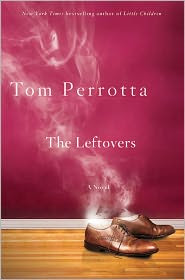 When not reading or writing books, he watches cop shows, or listens to CDs from his embarrassingly large collection of Jazz albums.
When not reading or writing books, he watches cop shows, or listens to CDs from his embarrassingly large collection of Jazz albums.Vyleta's new novel is The Quiet Twin.
Early this month I asked him what he was reading. His reply:
Larry McMurtry’s Comanche Moon. I grew up watching John Ford Westerns, dubbed into German that is, which seems a little strange now, but felt entirely natural then. John Wayne was much revered in my house: to my parents who had fled communist Czechoslovakia his characters’ gruff non-conformism must have symbolized something, a mode of life and Weltanschauung denoted in our house by a puzzling one-word cipher: západ -- the occident, the west.Visit Dan Vyleta's website and learn more about The Quiet Twin.
Larry McMurtry’s west is a different beast from Ford’s. Here, too, are the endless skies of Texas, the same yearning for the open prairie. But where Ford’s cowboys andpistoleros remain, at bottom, inscrutable, McMurtry takes the lids off his characters’ souls (if souls be pots), uncovering their motivations. He does so doggedly, with little literary affectation. The results are startling. Omniscience is an elevated point of view: we gaze with God. In other hands such total access to the petty currents of human desire might breed contempt; in McMurtry’s it breeds identification and compassion. It also wakes a yearning. What connects the many characters who people McMurtry’s prose is a shared freshness of perspective. Few of them can read; there is no radio or television that could impress on them their interpretations of the world. Their sense of reality has been shaped solely by their own encounters with life. As a result their vision is limited and often faulty, sometimes in ways that are laughable. For this reader, though, staring back into their lives, a sense of envy stirs for the freshness of their experience. In their struggle to penetrate to the truth of a thing, they do all their own digging. Google does not lend a hand.
See Vyleta's top 10 list of books in second languages.
--Marshal Zeringue



















































